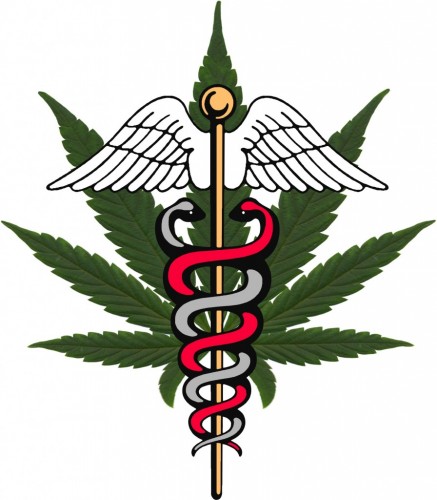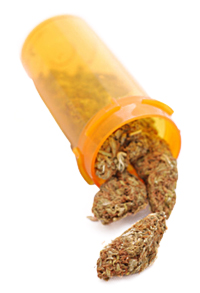by Steve Jerman
Editors Note: Utah Stories takes no official stance on the legalization of marijuana, and the editor of Utah Stories does not personally understand the “recreational” purpose of using marijuana. Further, his personal observation is that over-use of marijuana for recreational purposes produces less effective, motivated and productive people as compared to those who abstain.
A man we will call Tony, of West Valley City, has used marijuana in place of the ADD drugs he was prescribed as a youth. He sometimes steals it from his Dad. A woman we will call Ruth Ann‚ a resident of South Salt Lake, is moving to Colorado so she no longer feels criminal when she using pot for chronic back pain. A resident of Sugar House we will call Scott committed to use marijuana for Depression and PTSD after no other medication seemed to have the same benefits.
For over four centuries the Cannabis plant has been recognized as a medicinal herb. It is very quickly becoming accepted as a superior, and legal, choice by many patients across the U.S. for a wide range of ailments and conditions. But it is still illegal in Utah, and people still get arrested; 4,288 arrests were made in 2007. Do these people, or even casual, recreational users, deserve the label of “Criminal”?
Do they deserve to do hard time for their “abuse” of a “drug,” or have they indeed found a legitimate remedy for pain or impulses they suffer? While Utah probably won’t legalize marijuana any time soon, we try to shed some light on the growing national debate and on local groups that are pushing for legalization of what is labeled, by the most stanch opponents, a “gateway drug.”
A Natural Medicine?
“It’s the only illegal thing I do,” says Ruth Ann, “but it won’t be when I move.” This statement typifies the leverage that the movement is getting, and why many consider their use of marijuana an act of non-violent civil disobedience described in the Constitution. However, to legalize Medical Marijuana in the Beehive State would require a ballot initiative and organizers willing to spend the time to get the new laws on the ballot.
There are proponents, but at press time it’s been hard to find a politician to even speak on the subject. In 2009 Utah House Minority Leader David Litvack, D-Salt Lake City, was quoted saying, “I think medical use of marijuana is very worthy of exploring and talking further about. I think a lot of [Democrat lawmakers] don’t understand the issue.” When asked to comment for this article, he respectfully declined. Former Rep. Christine Johnson was the only legislator known to address the subject. She has since left government service, moving out of state.
Given that municipalities do seem to have a say in medical issues, I contacted the Salt Lake Mayor’s office for Ralph Becker’s stance, but did not get a reply. His predecessor, Former Salt Lake City Mayor Rocky Anderson, once said, “To put people behind bars for possessing or smoking pot is absolutely absurd. It would make more sense to put people behind bars for smoking cigarettes.” Pressed on the subject he confirmed, “Yes, I think marijuana should be legalized.”
Harm Assessments Differ
In 2009 Jon Greiner, R-Ogden, indicated that he would never support medical marijuana until “the FDA gives me evidence that the 454 elements contained within marijuana are all safe.” He also wants evidence that marijuana is not a gateway drug. “Gateway” describes less harmful drugs that may lead to using more dangerous hard drugs and/or crime.
In 1999, a study by the National Institute of Science found no evidence of any link between Cannabis use and the subsequent abuse of other illicit drugs on the basis of it’s particular physiological effect. Later in 2006, the American Psychiatric Association wrote that subjects of its study on 10 to 12-year-old children showed that those who used Cannabis were no more likely to develop a substance abuse disorder than subjects who did not use Cannabis prior to using other drugs. In other words, rearranging the order of the alleged “stepping stones” did not change the outcomes.
When asked about the gateway drug concept, Scott replied, “Well, George Carlin said, ‘Mothers milk leads to heroin.’ I guess you could look at it that way.
Utah Stories takes no official stance on the legalization of marijuana, and the editor of Utah Stories does not personally understand the “recreational” purpose of using marijuana. Further, his personal observation is that over-use of marijuana for recreational purposes produces less effective, motivated and productive people as compared to those who abstain.
A man we will call Tony, of West Valley City, has used marijuana in place of the ADD drugs he was prescribed as a youth. He sometimes steals it from his Dad. A woman we will call Ruth Ann‚ a resident of South Salt Lake, is moving to Colorado so she no longer feels criminal when she using pot for chronic back pain. A resident of Sugar House we will call Scott committed to use marijuana for Depression and PTSD after no other medication seemed to have the same benefits.
For over four centuries the Cannabis plant has been recognized as a medicinal herb. It is very quickly becoming accepted as a superior, and legal, choice by many patients across the U.S. for a wide range of ailments and conditions. But it is still illegal in Utah, and people still get arrested; 4,288 arrests were made in 2007. Do these people, or even casual, recreational users, deserve the label of “Criminal”?
Do they deserve to do hard time for their “abuse” of a “drug,” or have they indeed found a legitimate remedy for pain or impulses they suffer? While Utah probably won’t legalize marijuana any time soon, we try to shed some light on the growing national debate and on local groups that are pushing for legalization of what is labeled, by the most stanch opponents, a “gateway drug.


